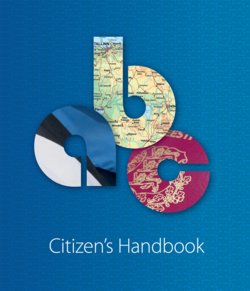Читать книгу Citizen’s Handbook - Mart Jagomägi - Страница 6
На сайте Литреса книга снята с продажи.
PUBLIC HOLIDAYS, DAYS OF NATIONAL IMPORTANCE AND FLAG DAYS
ОглавлениеThe public holidays and days of national importance have been established by the Public Holidays and Days of National Importance Act.
The national day is 24 February – Independence Day, anniversary of the Republic of Estonia
Public holidays and days of rest:
• 1 January – New Year’s Day
• Good Friday
• Easter Sunday
• 1 May – May Day
• Pentecost
• 23 June – Victory Day
• 24 June – Midsummer Day
• 20 August – Day of Restoration of Independence
• 24 December – Christmas Eve
• 25 December – Christmas Day
• 26 December – Boxing Day
An employer shall shorten the working day preceding New Year’s Day, the anniversary of the Republic of Estonia, Victory Day and Christmas Eve by three hours (Employment Contracts Act).
Days of national importance:
• 6 January – Epiphany
• 2 February – Anniversary of Tartu Peace Treaty
• 14 March – Native Language Day
• the 2nd Sunday in May – Mother’s Day
• 4 June – National Flag Day
• 14 June – Day of Mourning and Commemoration
• 23 August – European Day of Remembrance for Victims of Communism and Nazism
• the 2nd Sunday in September – Grandparents Day
• 22 September – Resistance Fighting Day
• the 3rd Saturday in October – Finno-Ugric Day
• 2 November – All Souls’ Day
• the second Sunday in November – Father’s Day
• 16 November – Day of Declaration of Sovereignty
Flag days have been established by the Estonian Flag Act
• 3 January – Day of Commemoration of the War of Independence fighters
• 2 February – Anniversary of Tartu Peace Treaty
• 24 February – Independence Day, anniversary of the Republic of Estonia
• 14 March – Native Language Day
• the second Sunday in May – Mother’s Day
• 9 May – Europe Day
• 4 June – National Flag Day
• 14 June – Day of Mourning and Commemoration (the flag is hoisted as a mourning flag)
• 23 June – Victory Day
• 24 June – Midsummer Day
• 20 August – Day of Restoration of Independence
• 1 September – Day of Knowledge
• the third Saturday in October – Finno-Ugric Day
• the second Sunday in November – Father’s Day
• the Election Day for the Riigikogu or local government, days when referendums are held and the Election Day for the Eureopean Parliament
On flag days, government and local authority agencies and legal persons in public law shall hoist the Estonian flag.
The Estonian flag must be hoisted on all buildings on three days of the year – the anniversary of the Republic of Estonia (Independence Day, 24 February), Victory Day (23 June), and Day of Restoration of Independence (20 August).
Time of hoisting and lowering the flag
• The Estonian flag is hoisted at sunrise (but not later than 8.00 AM) and lowered at sunset (but not later than 10.00 PM).
• The Government of the Republic may decide that, on a particular occasion, the Estonian flag is to be hoisted and lowered at other hours.
The Estonian flag is not lowered on Midsummer Night. Lowering of the flag is also not required if it is illuminated at night time.
On 16 February (the Independence Day of Lithuania), the national flag of Lithuania, and on 18 November (the day of proclamation of the Republic of Latvia), the national flag of Latvia are hoisted together with the Estonian flag on the building of the Riigikogu, the President of the Republic and the Government of the Republic.
Everyone has the right to hoist and use the Estonian flag in accordance with the provisions of the Estonian Flag Act and with good practice.
When the Estonian flag is hoisted as a mourning flag, a black ribbon must be attached to the upper end of the flagstaff or the flag be hoisted at half-mast.
The Government Office government-office) provides explanations regarding the procedure for the use of the Estonian flag and of its sequence of colours and regarding the observance of good practice.
